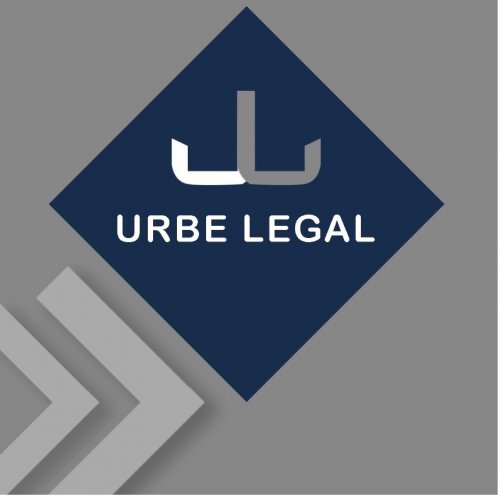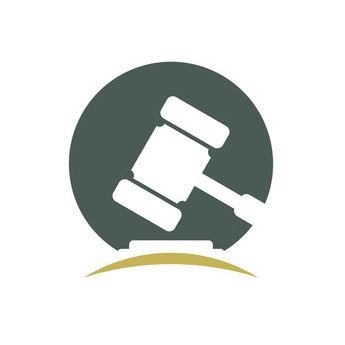Best Sex Crime Lawyers in Guatemala
Share your needs with us, get contacted by law firms.
Free. Takes 2 min.
Or refine your search by selecting a city:
List of the best lawyers in Guatemala
About Sex Crime Law in Guatemala
Sex crime law in Guatemala is governed by the country's Penal Code and related legislations which address a variety of offenses including sexual violence, exploitation, and misconduct. The legal framework aims to protect individuals from sexual abuse and ensure justice for victims. Over the years, Guatemala has worked to strengthen its legal measures to combat sex crimes, reflecting commitments to international human rights standards. However, challenges such as societal stigma and underreporting still persist, affecting the prosecution and prevention of such crimes.
Why You May Need a Lawyer
Legal assistance is often crucial in sex crime cases due to the complexity and sensitivity of the issue. Victims may require legal aid to understand their rights, navigate the justice system, and ensure their voices are heard. Accused individuals also need legal representation to ensure their right to a fair trial. Common situations involving legal help include filing complaints, seeking restraining orders, navigating trial proceedings, and appealing decisions. Legal professionals can provide guidance, represent clients in court, and assist in gathering and presenting evidence.
Local Laws Overview
Guatemala's legal system includes strict provisions against a range of sex crimes such as rape, sexual assault, and human trafficking. The Penal Code defines various offenses and prescribes penalties, which can range from fines to lengthy prison sentences. Notable aspects include the criminalization of sexual acts involving minors and abuse of authority. The country's laws also emphasize victim protection through anonymity and psychological support services. International treaties ratified by Guatemala further reinforce local efforts to combat and prosecute sex crimes.
Frequently Asked Questions
What should I do if I'm a victim of a sex crime in Guatemala?
It's important to seek immediate safety and medical assistance. Report the incident to local authorities and consider reaching out to organizations that provide support to victims of sexual violence. Legal advice can help you understand your rights and navigate the justice process.
How can I report a sex crime?
You can report a sex crime to the local police or through the Ministry of Public Defense. It's important to provide as much detail as possible, and you can also approach non-governmental organizations (NGOs) that focus on legal support for guidance.
What are the legal consequences of committing a sex crime in Guatemala?
The penalties for sex crimes vary based on the severity of the offense. Convictions can lead to significant prison sentences, fines, and a permanent criminal record. In cases involving minors or trafficking, penalties are particularly severe.
Can foreigners be prosecuted for sex crimes in Guatemala?
Yes, foreigners can be prosecuted under Guatemalan law if they commit a sex crime within the country. They have the same legal rights and obligations as locals and should seek legal representation.
What are my rights if accused of a sex crime?
If accused, you have the right to a fair trial, legal representation, and to be considered innocent until proven guilty. A lawyer can help you navigate the justice system and ensure your rights are protected throughout the process.
How does Guatemala protect the privacy of sex crime victims?
Guatemalan law emphasizes the confidentiality of victims' identities. Legal proceedings often involve measures to protect victims from unnecessary public exposure, and victims are afforded psychological support to ensure their well-being.
Are there special courts or proceedings for sex crimes in Guatemala?
While sex crimes are handled within the general court system, there are specialized units and prosecutors trained to handle such cases more sensitively and effectively, ensuring justice is served in a victim-focused manner.
What are the challenges in prosecuting sex crimes in Guatemala?
Common challenges include societal stigma, underreporting, and limitations within the justice system, such as insufficient resources or delays. Awareness and educational initiatives are ongoing to address these issues.
How can someone access free or low-cost legal aid for sex crime cases?
Various NGOs and legal aid clinics offer free or affordable services to victims and those accused of sex crimes. Governmental bodies may also provide legal assistance depending on the case's nature and the individual's financial situation.
Can legal advice be accessed in indigenous languages?
Yes, there are efforts to provide legal services in indigenous languages to ensure accessible and equitable justice. It is advisable to inquire with local legal aid organizations for such services.
Additional Resources
For those seeking more information or assistance, consider reaching out to these organizations and governmental bodies:
- Guatemalan Human Rights Ombudsman (Procuraduría de los Derechos Humanos)
- National Institute of Forensic Sciences (INACIF)
- UN Women Guatemala
- Women’s Justice Initiative
- Association of Women Torture Survivors
- Various local NGOs specializing in human rights and victim support
Next Steps
If you require legal assistance in a sex crime case, start by reaching out to the nearest police station to report the crime, if applicable. Contact a legal professional with experience in sex crimes to discuss your case and receive advice tailored to your situation. If cost is a concern, look for NGOs or legal aid services that may offer pro bono or low-cost services. Remember, taking prompt legal action can be crucial in such cases to secure evidence and protect your rights.
Lawzana helps you find the best lawyers and law firms in Guatemala through a curated and pre-screened list of qualified legal professionals. Our platform offers rankings and detailed profiles of attorneys and law firms, allowing you to compare based on practice areas, including Sex Crime, experience, and client feedback.
Each profile includes a description of the firm's areas of practice, client reviews, team members and partners, year of establishment, spoken languages, office locations, contact information, social media presence, and any published articles or resources. Most firms on our platform speak English and are experienced in both local and international legal matters.
Get a quote from top-rated law firms in Guatemala — quickly, securely, and without unnecessary hassle.
Disclaimer:
The information provided on this page is for general informational purposes only and does not constitute legal advice. While we strive to ensure the accuracy and relevance of the content, legal information may change over time, and interpretations of the law can vary. You should always consult with a qualified legal professional for advice specific to your situation.
We disclaim all liability for actions taken or not taken based on the content of this page. If you believe any information is incorrect or outdated, please contact us, and we will review and update it where appropriate.
Browse sex crime law firms by city in Guatemala
Refine your search by selecting a city.










